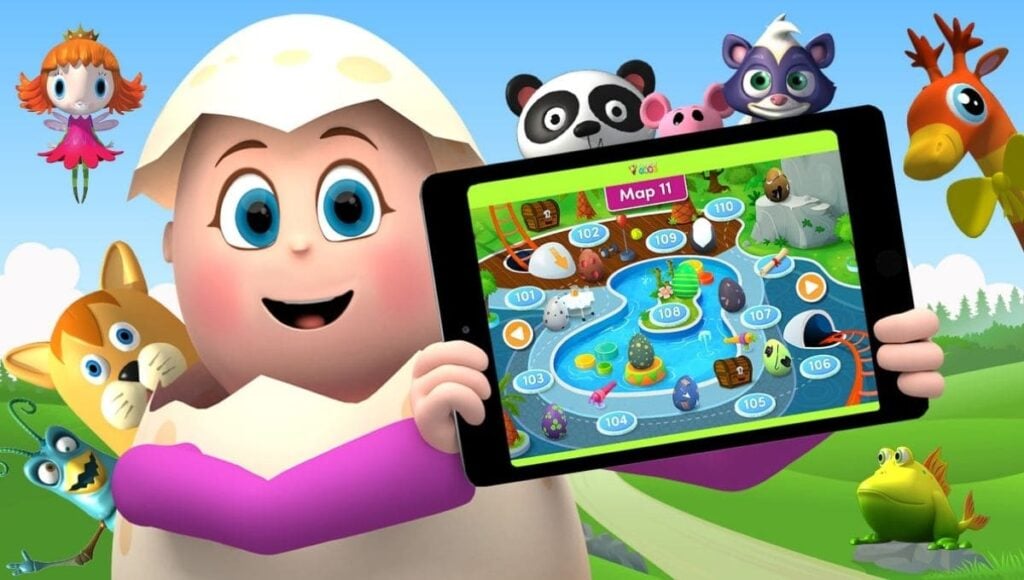There are many teaching tools on the market. We’ve all wandered through news agencies and seen shelf after shelf of naplan preparation material, readers for different age levels and hands-on activities. But how do you know which materials will actually give your children a boost?
Technology designed to improve literacy
We’ve had teaching professionals help us determine how best to help your child improve their literacy by closely examining both Reading Eggs vs Spelling City. These educators have worked in schools for well over ten years with a range of age, literacy and ability levels. They are also parents themselves and know what works (and what doesn’t!).
It’s important to remember with any teaching material that the best results will occur when you work in partnership with what your child’s educator is trying to do. You also need to ensure that you frame learning as a positive experience to help your child be inspired to achieve instead of afraid to try. Engagement is half the battle!
Reading Eggs

One of our parents reviewed Reading Eggs in a lot of detail here. Effectively, what you’re looking at is a series of games designed to allow students to acquire skills that are aligned with the Australian Curriculum. This is presented to children in the form of engaging games that have the kinds of repetitive elements that we all know help children retain knowledge.
The games will move from alphabet and basic sound combination recognition (pre-prep – this program is for 3 and up!); phonics, word blends and basic sentences(prep and grade 1) to Reading Eggspress which combines the reading of short texts with comprehension activities (grade 1 to 5). The ability to access this program on a tablet makes it very accessible for younger ones who don’t yet have the ability to move and control a mouse.
The pre-prep and early years components of Reading Eggs are definitely what set it apart from Spelling City (found later in this review). This is just aimed at a slightly younger audience and is therefore more accessible to littler ones. The Australian accents, characters and contexts make it easier to understand as well.
The Reading Eggspress comprehension activities were of particular interest to one of our high school teachers. Extensive experience with students who perform on the lower-levels of literacy in secondary school demonstrates that a key gap in ability can be found in comprehension and inference abilities. Students who can find meaning inside, behind and underneath texts are more critically literate and better able to create their own understandings rather than having to wait for things to be explained for them. The ingenuity of this program is that this important skill is delivered in the form of cute games with interesting sounds and graphics. Kind of like hiding vegetables in a dinner to make it secretly healthy!
Here’s our video overview of what we love about the program:
Spelling City
Our high school teacher wrote this review on Spelling City and said it was the best spelling program she’d ever used. The screenshots we’re including in this part of the review all come from her personal Spelling City teacher account so you can see it in action!


Spelling City is not designed for the younger age ranges that are catered to by Reading Eggs and it has a different goal. This is more of a fine-point focus on the mechanics of spelling and word creation rather than the broader approach of words in context and comprehension. Spelling City is generally used for mid to late primary school all the way up to end of year 12.
Spelling City, if used by a teacher, will involve the setting up of specific word lists based on how students go in a USI (upper level spelling inventory) test. These tests identify spelling areas that students have difficulties in. Spelling City can then provide them with tests and activities designed to tap into their individual needs rather than a ‘one size fits all’ approach.


As stated in our review, the children can run through tests that are read out to them by an American voice. This can sometimes prove difficult as the accent is different but that’s easily solved with a few listens. Students then have the options to play a wide range of games that can enhance their skills, give them some practice and provide a bit of fun in class.
Teachers can track student achievement, see when students are accessing the program outside of class time and set individual challenges and tasks.
Parents can also have Spelling City accounts. They can set select a range of literacy games for their child, tap in to see what the teacher is identifying and provide tasks for their children to try as well. As this program can also be accessed on a tablet this can prove useful anytime and anywhere.
The Families Magazine verdict: Reading Eggs vs Spelling City?
And the winner is…
BOTH!
Both of these programs have excellent potential to enhance the practice of literacy in a home environment. They are different programs designed for different purpose and there is a place for both.
We particularly liked the personalisation offered by both Reading Eggs and Spelling City. Children can skip ahead or repeat units. The fact that both have fun, colourful games is excellent. The help available online for both is absolutely outstanding. The price of both is excellent.
You can sign up for a 30 day free trial for Reading Eggs here.
Literacy in the home
The chief element that determines a child’s literacy is what happens in the home. A love of reading and learning aided by a supportive educational environment is the right recipe for success.
We hope you found this comparative review helpful! Please let us know in the comments – what other tech-teaching-tools are you using in the home to help your children?

